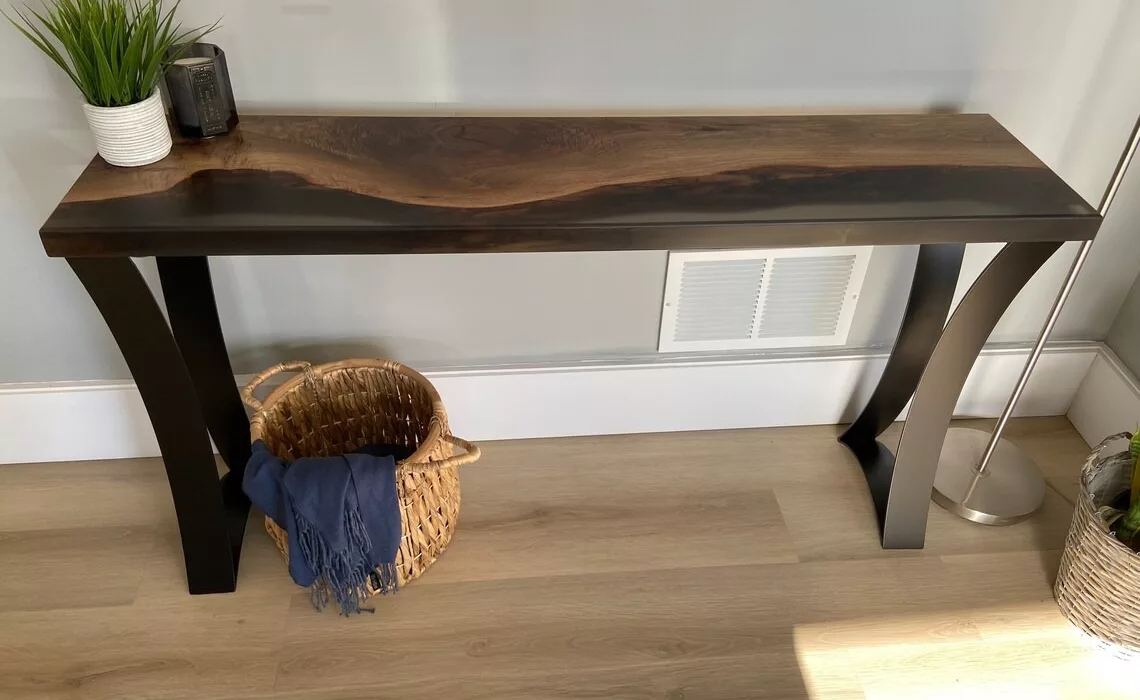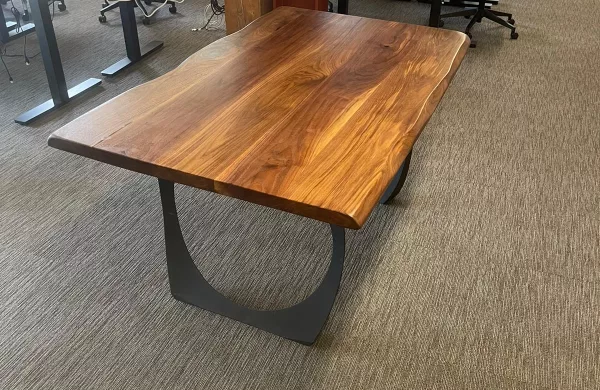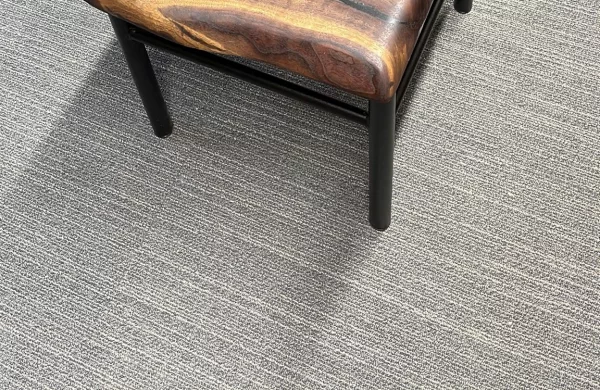
Walnut wood is highly regarded for making dining tables due to its unique combination of aesthetic appeal, durability, and workability. Here are several reasons why walnut is an excellent choice for a dining table:
- Rich Color and Grain: Walnut wood is known for its rich, warm brown color that can range from light to dark, providing a sense of luxury and warmth to any dining room. The wood also features a fine grain that is often highlighted with darker streaks, adding character and visual interest to the table.
- Durability and Strength: Walnut is a hardwood, which means it is dense and strong. It can withstand the wear and tear of daily use, making it an ideal choice for a piece of furniture that will be used frequently, such as a dining table.
- Resistant to Warping and Shrinking: Walnut wood has good dimensional stability, meaning it is less likely to warp or shrink with changes in humidity compared to other types of wood. This makes a walnut dining table more durable over time, maintaining its shape and structural integrity.
- Workability: Despite its hardness, walnut wood is relatively easy to work with using both hand and machine tools. This allows for a variety of designs and details in the crafting of dining tables, from simple and modern to intricate and traditional styles.
- Natural Finish: Walnut wood takes well to finishes, allowing its natural color and grain to shine through. A clear coat of finish can enhance its appearance and protect the wood, making it even more suitable for use as a dining table.
- Timelessness: The beauty of walnut wood is timeless, and it tends to complement both contemporary and traditional decor. A walnut dining table can be a lasting piece of furniture that never goes out of style.
- Resale Value: Due to its desirable qualities, walnut furniture often holds or even increases its value over time. Should you ever decide to sell your dining table, walnut is likely to have a higher resale value compared to other woods.
- Unique Character: Each piece of walnut wood has its own unique characteristics, meaning no two tables are exactly alike. This uniqueness adds a personal touch to your dining space.
- Sustainability: When sourced responsibly, walnut can be an environmentally friendly choice for furniture. Look for walnut wood that comes from sustainably managed forests to ensure your dining table is both beautiful and eco-conscious.
- Comfort and Warmth: Beyond its physical and aesthetic qualities, walnut wood adds a sense of comfort and warmth to dining spaces, creating an inviting atmosphere for meals and gatherings.
- Acoustic Properties: Walnut wood has natural acoustic properties that can contribute to a more pleasant ambiance in a dining room. It tends to absorb sound, which can help reduce the noise level during lively dinner conversations, making the dining experience more enjoyable.
- Low Maintenance: Walnut wood’s durability also translates into low maintenance. It doesn’t require frequent treatments or special cleaners to keep it looking its best. Regular dusting and occasional polishing are often enough to maintain its beauty and functionality over the years.
- Aging Gracefully: One of the unique characteristics of walnut wood is its ability to age gracefully. Over time, the wood can develop a richer, more refined patina that adds to its beauty and character. This natural aging process means that a walnut dining table can become even more beautiful as it ages.
- Heat Resistance: While all wood can be affected by extreme temperatures, walnut has a relatively high resistance to heat compared to other types of wood. This makes it a good choice for dining tables where hot dishes and cookware might be placed, although protective pads or trivets are still recommended to prevent damage.
- Versatility in Design: Walnut’s rich color and attractive grain make it versatile in design and style. Whether you’re aiming for a sleek, modern look or a more traditional, ornate design, walnut wood can be crafted to meet those aesthetic goals. Its ability to be easily shaped and joined also allows for custom designs and unique table shapes.
- Emotional Connection: Furniture made from walnut often carries an emotional value, especially if it’s handcrafted or passed down through generations. A walnut dining table can become a centerpiece of family gatherings, celebrations, and memorable moments, enhancing the emotional connection to the home.
- Complements Other Materials: Walnut wood pairs well with a variety of other materials, such as metal, glass, and stone, allowing for diverse design options. A walnut table can feature metal legs for an industrial look, a glass top for elegance, or stone inlays for extra flair, showcasing its adaptability in design.
- Allergy-Friendly: Compared to some other types of wood, walnut is less likely to trigger allergies. Its tight grain prevents the accumulation of dust and allergens, making it a healthier choice for indoor air quality, especially in dining areas where cleanliness is paramount.
- Repairable: Despite its hardness and durability, should a walnut dining table get scratched or dented, it is often possible to repair it without too much trouble. Sanding and refinishing can restore its appearance, making it a long-lasting investment.
- Symbolic Meaning: In some cultures, walnut wood symbolizes wisdom and knowledge, adding a layer of symbolic meaning to your dining space. Choosing a walnut table could reflect a desire for a home filled with thoughtful conversations and insightful exchanges around the dinner table.
These additional reasons underscore the multifaceted appeal of walnut as a material for dining tables, combining practicality with profound aesthetic and emotional values, making it a cherished choice for many homeowners.








